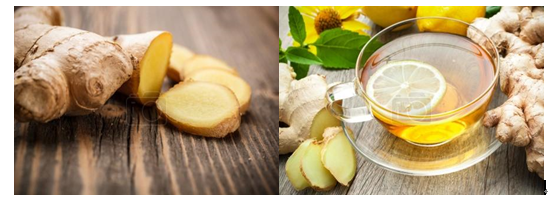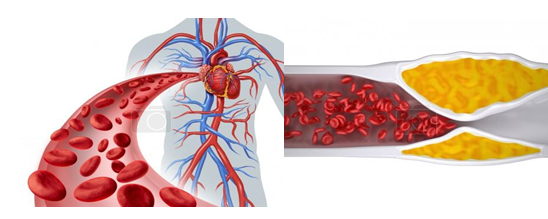
 nootro
nootro

 2017-10-23
2017-10-23

 0
0

 7346
7346
Ginger is a plant with leafy stems and yellowish green flowers. The ginger spice comes from the roots of the plant. Ginger is native to warmer parts of Asia, such as China, Japan, and India, but now is grown in parts of South American and Africa. It is also now grown in the Middle East to use as medicine and with food.

Ginger Extract is derived from the dried, ground rhizomes of cultivated ginger Zingiber Officinale, Zingiberaceae family, using the aqueous-alcoholic extraction method followed by concentration and drying on a vacuum-spray drier. Appearance: a fine, brown or brownish-yellow powder with a characteristic odour and taste.
Anti-inflammatory activity
Ginger is a rich source of antioxidants, including gingerols, that may exert strong anti-inflammatory tendencies in the body to help dull muscular discomfort in response to lifting weights and other forms of exercise. This is particularly true if you include eccentric training (negatives) or intense running in your weekly exercise routine. Research has found that 2 grams of ginger per day may limit the much-loathed muscle pain associated with each.
Ginger has been found to inhibit prostaglandin biosynthesis and interfere with the inflammatory cascade and the vanilloid nociceptor9. Ginger has been shown to share pharmacological properties with non-steroidal anti-inflammatory drugs (NSAIDs) because it suppresses prostaglandin synthesis through the inhibition of cyclooxygenase-1 and cyclooxygenase-2.
Antioxidant activity
In vitro, ginger has been shown to exhibit antioxidant effects. (6)-gingerol appears to be the antioxidant constituent present in ginger, as it was shown to protect HL-60 cells from oxidative stress. Ginger oil has dominative protective effects on DNA damage induced by H2O2. Ginger oil might act as a scavenger of oxygen radical and might be used as an antioxidant.
Weight loss effects
Spiced foods or herbal drinks, such as those that contain ginger, have the potential to produce significant effects on metabolic targets, such as satiety, thermogenesis, and fat oxidation. A significant clinical outcome sometimes may appear straightforwardly but also depends too strongly on full compliance of subjects. Thermogenic ingredients, such as ginger, may be considered as functional agents that could help restore a "positive energy balance" and prevent obesity.
Additionally, a small pilot study published in the journal Metabolism found that 2 grams of ginger per day may help to curb your appetite. Although more research is needed to confirm these findings, making a toasty ginger brew a part of your day may help you avoid mindless snacking later on.
Cardiovascular system
In vitro research indicates that gingerols and the related shogaols exhibit cardiodepressant activity at low doses and cardiotonic properties at higher doses.7 Both (6)-shogaol and (6)-gingerol, and the gingerdiones, are reportedly potent enzymatic inhibitors of prostaglandin, thromboxane, and leukotriene biosynthesis.
Ginger can make platelet stickiness and reduce the accumulation to support cardiovascular health. Preliminary study that a small amount of ginger can have lower cholesterol and prevent blood clotting. These functions can protect blood vessels from damage caused by obstruction and blocking effect such as artery sclerosis and so on.

Anticoagulant effects
Ginger has been shown to inhibit platelet aggregationand to decrease platelet thromboxane production in vitro. (8)-Gingerol, (8)-shogaol, (8)-paradol, and gingerol analogues exhibited anti-platelet activities.
Dosage
For motion sickness: 0.5g. 2-4 times daily in adults and children more than 6 years
For dyspepsia: 2-4g daily, as powdered plant material or extracts.
Ginger Extract is widely used as an important spice as well as a digestive aid for mild stomach upset, it can also be used to help prevent or treat nausea and vomiting associated with motion sickness, pregnancy, and cancer chemotherapy. In addition, it can be used to help treat arthritis, colic, diarrhea and heart disease.
Early studies have shown that this compound possesses a plethora... More

 1
1

 1
1
Echinacoside products in Xinjiang mainly, Inner Mongolia Alxa Le... More

 0
0

 0
0
Ginger is a plant with leafy stems and yellowish green flowers.... More

 0
0

 0
0

 0
0

 0
0
Glycyrrhizic acid(or glycyrrhizin) is the main sweet ingredient ... More

 0
0

 0
0
Chelerythrine is the benzo phenanthridine alkaloid present in th... More

 0
0

 0
0
Pumpkin seeds are powerful, nutrient-rich superfoods that contai... More

 0
0

 0
0

 0
0

 0
0
